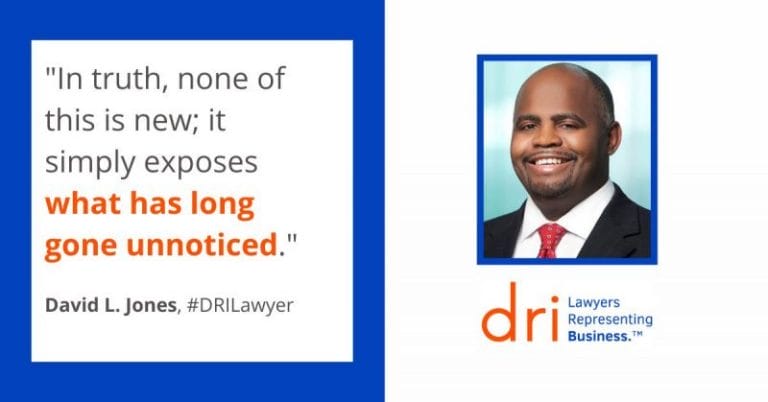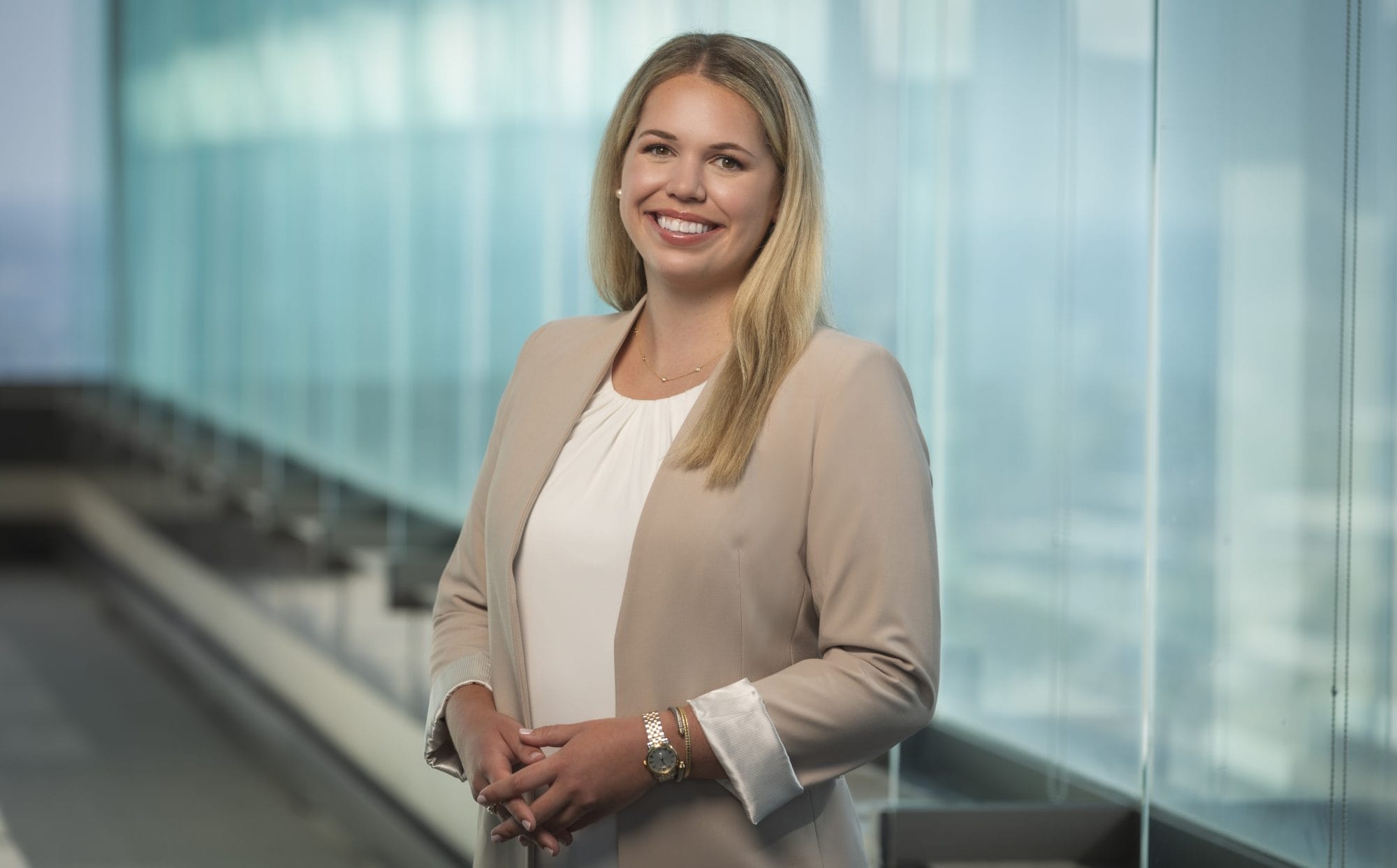
Categories

This article is authored by WLJ partner David L. Jones and appeared in Volume 19, Issue 34 of DRI’s “The Voice.”
Although DRI has been a second family for many years, for those who I have not yet met and befriended, I am David Jones, or “Dave.” I grew up in rural, south Arkansas, where being a child simply does not excuse one from hard work. I was born the fourth of my parents’ ten children. I am the son of a homemaker and a Navy veteran turned country pastor and school board member, which, for those wondering, is the worst possible combination of disciplinarian. I am a first-generation graduate of a private, predominately white, liberal arts college, at which I currently serve as a trustee. I am a partner at Wright, Lindsey & Jennings LLP, where I take great pride in regularly representing businesses by which my father was long-ago employed as a laborer. I am the proud husband of an OBGYN, who I hope never fully grasps the fact that my deal-making skills were much better than hers way back when. I am the proud father of three college students who regularly remind me that they are grown and fiercely, but not financially, independent. I earned my law degree from the UALR William H. Bowen School of Law, mostly while commuting three hours daily to share child-rearing duties with my wife, who was finishing college. For many years, I practiced law while serving as the primary caretaker to my children while my wife completed medical school and residency. One or more of my life experiences may well intersect your own. However, I am acutely aware that none of what I do or who I am immunizes me. I am a dark-skinned Black man, and most days, that colors my American experience.
Let me get this out of the way: I have watched as many America-saves-the-day movies as anyone, and I am unapologetically American. I am eternally grateful that I was born in the USA, where someone like me can advance his or her station in life. None of that affords me the luxury of blindly ignoring the reality that our American experiment has been, diplomatically, imperfect. It is tainted by a history of systemic racism, inequality, and injustice that pervades our American experience and leaves me unsettled. Over the past few months, we have all endured the stress and persistent uncertainty of the COVID-19 pandemic. Like you, I am anxiously awaiting an immunization. I am equally anxious for a cure to what seems to be newly burgeoning racism, inequality, injustice, and lack of professionalism and accountability by those on whom we should be able to rely most for safety and security. These newly resilient, overt strands of the same old stuff completely belie what we were told just a few short years ago, that this is a post-racial world.
Over the last few weeks, I have been heartened by installments from my colleagues and friends who have voiced concern, exhaustion, exasperation, and experiences that resonate with my own. I have also been heartened by the prism of ethnicities participating in nationwide protests. Chances are, if you have a Black partner or associate, he or she is feeling the same way, whether comfortable enough to share or not. Many of us are reeling from a steady stream of new examples of brazen oppression and injustice, the latest publicized instance of which appears to be Jacob Blake. In truth, none of this is new; it simply exposes what has long gone unnoticed.
In the midst of all of this, I am told that COVID-19 has ushered in a “new normal.” I am wondering whether the new normal can include a space where I can have routine shopping experiences without being closely watched and followed, only to be later asked for my receipt and each item checked as I attempt to leave. I am wondering whether the new normal can include space where I can leave the office at 3:00 a.m. in the morning after preparing for trial without being herded onto a dark side street, ordered out of my vehicle, and questioned by multiple officers about what I am doing out here. I am wondering whether the new normal can include a space where I can honestly tell my white colleagues how many times I have had similar police encounters without being judged a criminal who “must had done something wrong,” or my Black ones, without hearing that this is a shared experience. I wondering whether the new normal can include a space where I can feel completely comfortable jogging in my own neighborhood or allowing my children to do so alone. I am wondering whether the new normal can include a space where I do not have to repeatedly remind my children how to safely navigate an encounter with the police and hope that they do not encounter one who is ill-trained or simply a bad apple.
I am wondering whether the new normal will cause those who have just recently engaged to be distracted, grow weary, become complacent, or once again go silent. I am wondering whether we will finally see each other when we remove our masks.











































































